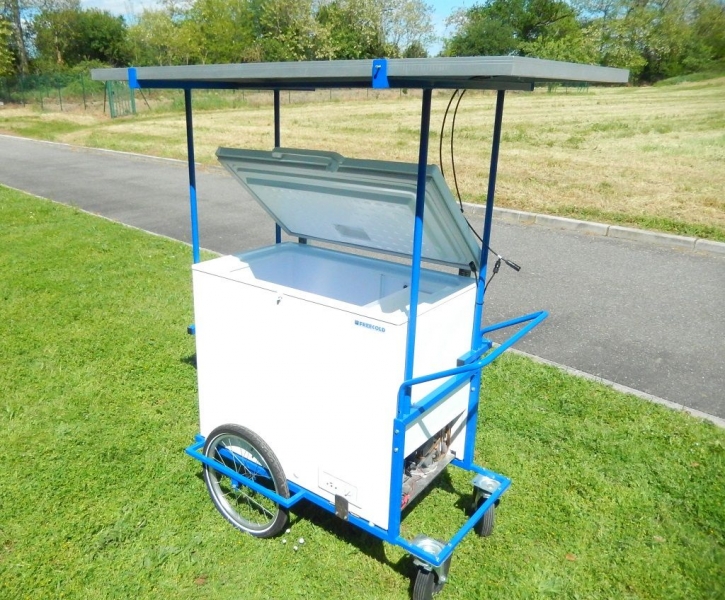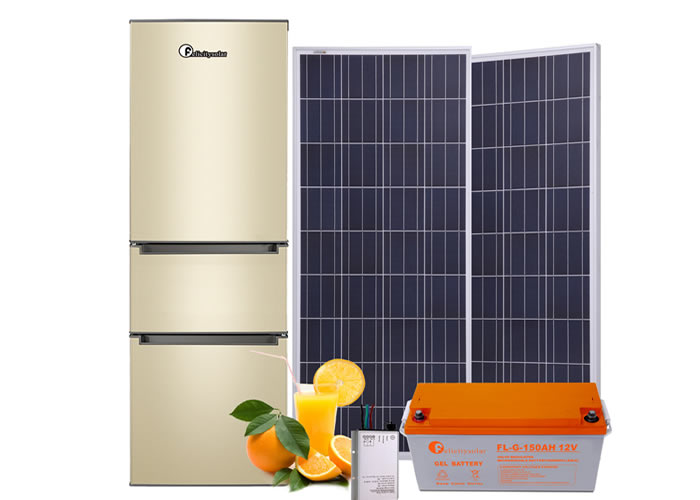Power your fridge with a solar refrigerator that works on renewable solar energy.
Power your fridge with a solar refrigerator that works on renewable solar energy.
Blog Article
The Relevance of Solar Fridge in Modern Renewable Power Practices
The integration of solar refrigerators within modern renewable energy techniques stands for a substantial innovation in lasting innovation. By utilizing solar energy for cooling, these systems not just reduce dependancy on standard energy resources but likewise address important concerns such as food conservation and accessibility to essential medications in remote areas.
Benefits of Solar Refrigerators
Solar fridges consistently offer countless advantages that make them an enticing choice for both property and commercial use. Among the primary advantages is their capability to harness sustainable power, considerably decreasing dependence on typical electricity resources. This not only decreases power bills but likewise adds to ecological sustainability by reducing greenhouse gas exhausts.
An additional secret advantage is their efficiency in remote areas where standard power supply might be unreliable or nonexistent. Solar refrigerators allow people and services to keep food safety and security and preserve perishable products, consequently boosting food security in underserved locations.
In addition, solar fridges generally require lower upkeep contrasted to traditional designs, as they have fewer moving components. solar refrigerator. This results in increased resilience and durability, supplying an affordable remedy in time. They likewise run calmly, adding to a more pleasant living or workplace
Moreover, the fostering of solar refrigeration innovation aligns with worldwide initiatives to advertise clean power remedies and combat climate change. By buying solar refrigerators, consumers not just benefit personally but also add to wider sustainability campaigns, making them a forward-thinking choice for the modern age.
How Solar Refrigerators Work

Solar fridges normally consist of a battery storage system to make certain performance during periods of low sunshine or nighttime. When sunlight is abundant, the PV panels produce electricity to operate the compressor and charge the batteries. The stored energy can then be utilized when solar power wants, maintaining a consistent temperature inside the fridge.
Numerous solar refrigerators additionally incorporate energy-efficient elements, such as LED illumination and high-performance insulation, to decrease power consumption. The effectiveness of these devices is further improved by passive cooling strategies, which can include reflective surfaces and thermal mass products that help preserve trendy temperature levels.
Applications in Off-Grid Areas

In remote regions, where standard refrigeration choices are often impractical or not available, solar fridges supply a sustainable service. They allow regional farmers to save subject to spoiling produce, thus decreasing waste and improving food protection. In addition, in healthcare settings, solar fridges guarantee that injections and necessary medicines stay practical, adding to better health and wellness outcomes for populaces that could or else encounter substantial obstacles to health care access.
Additionally, the deployment of solar fridges in off-grid areas can promote local economic situations by helping with the facility of local business, such as food processing and circulation. As these communities get to dependable refrigeration, they can participate in value-added activities, eventually bring about enhanced resources. The adoption of solar refrigeration innovation stands for not only a functional feedback to energy difficulties yet also a calculated financial investment in the resilience and sustainability of off-grid neighborhoods.
Ecological Impact and Sustainability
The combination of solar fridges right into power systems considerably improves ecological sustainability by reducing reliance on nonrenewable fuel sources and lessening greenhouse gas exhausts. By harnessing solar energy, these refrigerators run without the demand for standard electricity, which is usually produced from fossil gas resources. This change not just curtails carbon footprint but likewise promotes cleaner air high quality, as less contaminants are launched right into the ambience.
In addition, solar fridges are made to be energy-efficient, typically using advanced insulation technologies and energy administration systems. These attributes additional decline power usage, bring about a much more sustainable cycle of use. In country and off-grid areas, solar fridges provide important cooling without the ecological costs associated with diesel generators or other fossil fuel-based systems.
In addition, the fostering of solar refrigeration go to website adds to the reduction of food perishing, thereby reducing food waste and its affiliated ecological influences. As food manufacturing and waste are significant factors to greenhouse gas exhausts, enhancing food conservation through lasting air conditioning methods plays a pivotal role in overall ecological stewardship. For that reason, solar refrigerators not only stand for a technical improvement however likewise align with wider goals of sustainability and ecological responsibility.

Future of Solar Refrigeration
Imagining a future where solar refrigeration comes to be the norm exposes its possible to revolutionize the way we approach cooling and food preservation. As innovations in photovoltaic technology proceed to evolve, solar refrigerators are anticipated to end up being more reliable, inexpensive, and available. This shift will not just minimize reliance on nonrenewable fuel sources but navigate to this site also dramatically reduce greenhouse gas emissions associated with standard refrigeration methods.
Ingenious designs, such as solar-powered absorption and thermoelectric fridges, are most likely to get grip, specifically in off-grid and backwoods. The combination of wise modern technologies, including IoT capacities, will certainly enhance customer experience and enhance power consumption. Furthermore, the unification of energy storage space options will certainly enable solar refrigerators to offer consistent cooling also throughout periods of reduced sunlight.
The agricultural industry stands to benefit greatly, as solar refrigeration can prolong the service life of disposable items, decreasing food waste and boosting food safety. As governments apply encouraging plans and rewards, paired with enhanced consumer awareness, solar refrigeration could come to be a basic method across numerous sectors. Eventually, the future of solar refrigeration guarantees a sustainable and efficient approach to air conditioning, basically transforming food preservation and power usage worldwide.
Conclusion
In summary, solar fridges represent a pivotal advancement in eco-friendly energy techniques, using various benefits consisting of minimized reliance on fossil gas and boosted food preservation in off-grid areas. Their operation utilizes solar energy successfully, thus advertising sustainability and lessening environmental influence. As technology proceeds to develop, the possibility for solar refrigeration to add to neighborhood economies and more comprehensive sustainability goals will likely increase, reinforcing its relevance in the transition towards a cleaner, more sustainable power future.
Report this page